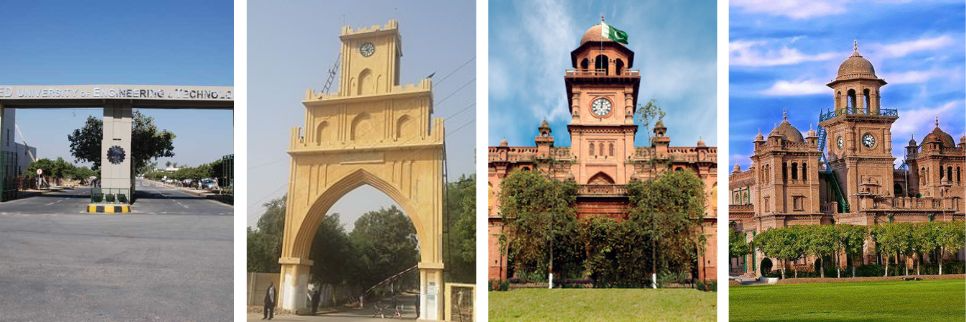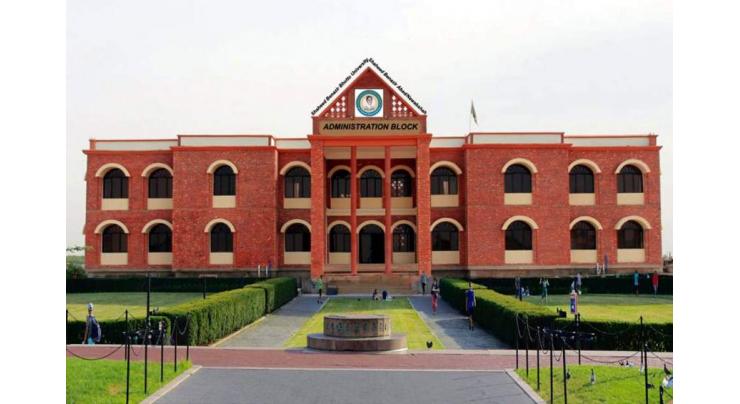Zulfikar Ali Bhutto, the former Prime Minister of Pakistan, remains a towering figure in the country’s political and social history. His tenure from 1971 to 1977 was marked by significant reforms that impacted various sectors, including education. One of the key aspects of Bhutto's legacy is his educational reforms, which sought to transform Pakistan's academic landscape. This article explores the universities that were established during Zulfikar Ali Bhutto's era, the educational policies he introduced, and how these universities contributed to Pakistan’s educational development.
Zulfikar Ali Bhutto’s Educational Reforms
Before diving into the specifics of the universities that were established during Bhutto’s tenure, it’s essential to understand the broad educational reforms he implemented. Bhutto’s government took bold steps to improve Pakistan’s education system, which had faced numerous challenges in the years following independence.
Nationalization of Educational Institutions
One of the most significant reforms during Bhutto’s time was the nationalization of educational institutions. In 1972, Bhutto introduced a policy that nationalized several private educational institutions, including schools, colleges, and universities. This move was aimed at making education more accessible to the general public, especially to those who could not afford private schooling.

Key Features of Bhutto’s Educational Reforms:
-
Nationalization of Educational Institutions: Bhutto’s government took control of numerous private institutions, ensuring that they followed a standardized curriculum and provided education at affordable rates.
-
Free and Universal Education: Bhutto’s government promised to provide free education up to class 10 for all citizens, thus ensuring that no child would be deprived of basic education due to financial constraints.
-
Expansion of Education Infrastructure: Bhutto’s policies encouraged the establishment of new educational institutions, particularly in rural areas, to cater to the educational needs of a growing population.
These reforms laid the groundwork for the establishment of several universities during Bhutto’s time, which continue to shape Pakistan’s educational system today.
Universities Established During Bhutto’s Era
During Zulfikar Ali Bhutto’s tenure, the government placed a strong emphasis on higher education. The need for a skilled workforce and intellectual development was recognized, and the government took steps to expand the number of universities and other higher education institutions across the country. Although Bhutto did not directly establish a large number of universities, his policies facilitated the growth of higher education institutions.
Zulfikar Ali Bhutto’s era was a pivotal time in Pakistan’s educational history. His policies laid the foundation for the expansion of higher education and the establishment of several key universities. These institutions have played a crucial role in shaping the intellectual and professional landscape of Pakistan. Bhutto’s commitment to education and his efforts to make it accessible to all have left a lasting legacy that continues to benefit Pakistan today.
Key Universities Established During Bhutto’s Era:
-
University of Engineering and Technology (UET), Taxila
-
Established in 1975, UET Taxila is one of the prominent engineering universities in Pakistan. The university was set up to meet the growing demand for engineers in the country and to provide quality education in engineering and technology.
-
-
Balochistan University of Information Technology, Engineering and Management Sciences (BUITMS)
-
Founded in 2002, the Balochistan University of Information Technology, Engineering, and Management Sciences (BUITMS) was established to provide higher education in technology, engineering, and management to the people of Balochistan.
-
-
Allama Iqbal Open University (AIOU)
-
Although AIOU was founded in 1974, it was during Bhutto’s leadership that the university expanded its operations across Pakistan. The university was designed to offer distance learning opportunities to students who were unable to attend traditional universities due to financial or geographical constraints.
-
-
Gomal University, Dera Ismail Khan
-
Gomal University, established in 1974, aimed to provide higher education to students from the Khyber Pakhtunkhwa province. The university offers a range of academic programs in social sciences, natural sciences, and humanities.
-
-
University of Sindh, Jamshoro
-
The University of Sindh was established in 1947, but it was during Bhutto’s era that the university gained national recognition and expanded its academic programs. It became one of the leading institutions in Sindh for higher education.
-
-
Islamabad University (Now Quaid-i-Azam University)
-
Quaid-i-Azam University, originally named Islamabad University, was established in 1967 but witnessed significant growth during Bhutto’s era. The university became one of the leading institutions for research and higher education in Pakistan.
-
Impact of Bhutto’s Educational Reforms on Universities
Zulfikar Ali Bhutto’s educational reforms had a profound impact on the universities that were established during his time. His policies were aimed at ensuring that higher education was accessible to all, regardless of socio-economic background. These universities played a vital role in shaping the intellectual and professional landscape of Pakistan.
Expansion of Higher Education
Under Bhutto’s leadership, the number of universities in Pakistan grew significantly. His policies allowed for the establishment of new universities and the expansion of existing ones. This growth was critical in addressing the increasing demand for higher education in Pakistan, particularly in the fields of engineering, science, and technology.
Focus on Technical Education
During Bhutto’s tenure, there was a strong emphasis on technical and professional education. Universities like UET Taxila were established to meet the growing need for engineers, while institutions like BUITMS focused on information technology and management sciences. This focus on technical education helped produce a skilled workforce capable of contributing to Pakistan’s industrial and technological development.
Inclusivity and Access
One of the primary goals of Bhutto’s educational reforms was to ensure that students from all backgrounds had access to higher education. By nationalizing private institutions and making education free, Bhutto’s government helped bridge the gap between the wealthy and the underprivileged. This inclusivity allowed talented students from marginalized communities to pursue higher education and contribute to the nation’s growth.
Strengthening Pakistan’s Intellectual Capital
The universities established during Bhutto’s era helped strengthen Pakistan’s intellectual capital. These institutions produced highly skilled professionals in various fields, including engineering, medicine, science, and social sciences. The expansion of higher education played a significant role in the development of Pakistan’s economy and infrastructure.

FAQs About Universities Established in Bhutto’s Era
1. How many universities were established during Bhutto’s era?
While Zulfikar Ali Bhutto did not directly establish a large number of universities, his policies contributed to the establishment of several key institutions, including UET Taxila, Gomal University, and Allama Iqbal Open University.
2. What were the key educational reforms introduced by Bhutto?
Bhutto introduced several reforms, including the nationalization of educational institutions, the provision of free education up to class 10, and the expansion of higher education institutions across the country.
3. Why did Bhutto nationalize educational institutions?
The nationalization of educational institutions aimed to make education more accessible to the masses, particularly to students from disadvantaged backgrounds. The goal was to ensure uniformity and equal access to education.
4. Which universities were founded during Bhutto’s tenure?
Some of the key universities founded during Bhutto’s era include UET Taxila, Gomal University, and Allama Iqbal Open University.
5. How did Bhutto’s reforms impact Pakistan’s education system?
Bhutto’s reforms helped expand access to education, increased the number of universities, and provided opportunities for students from all backgrounds to pursue higher education. This had a lasting impact on the country’s academic and professional development.





.gif)








.gif)







Sign in
to continue to ilmkidunya.com